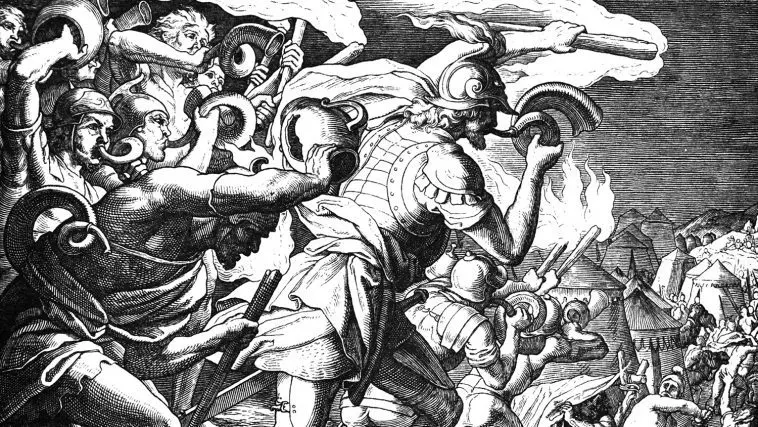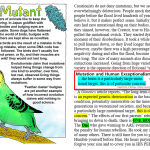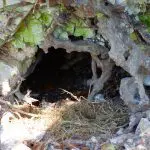[Originally published as New Archaeological Find Supports the Biblical Account of Gideon]
In the sixth chapter of the book of Judges, we read that the children of Israel were being oppressed by the Midianites. A young man named Gideon was harvesting wheat and trying to hide from the Midianites when an angel of the Lord visited him and told him that he could save the children of Israel.
As a first step, Gideon had to tear down the altar to Baal that his fellow Israelites had constructed. Gideon did as the angel commanded, and when the people heard what he had done, they wanted to execute him. His father (Joash) stopped the execution with some simple logic:
But Joash said to all who stood against him, “Will you contend for Baal, or will you save him? Whoever will contend for him shall be put to death by morning. If he is a god, let him contend for himself, since someone has torn down his altar!” Therefore on that day he named Gideon Jerubbaal, that is to say, “Let Baal contend against him,” because he had torn down his altar.
Gideon went on to lead a small army of untrained men against the Midianites, saving the children of Israel from them. The Gideons International, an organization of which I am a member, takes their name from this inspiring Biblical account.
Recently, archaeologists have uncovered evidence that supports one detail of this account. While digging in a small site 3 km west of the large archaeological site/Israeli National Park called Tel Lachish, they uncovered pottery fragments that are thought to have been made in the late twelfth or early eleventh century BC, which is the same time period in which Gideon’s story happened.
While the pottery is far from complete, the recovered pieces contain a painted inscription that reads, “Yrb‘l,” which means Jerubba‘al, the name Joash gave his son. In discussing their find in the context of other relevant finds, the archaeologists say:
The chronological correlation between the biblical tradition and ancient Judean inscriptions indicates that the biblical text preserves authentic Judean onomastic traditions.
In other words, this find and others indicate that the names mentioned in the Bible are not fictional. They are real names that were used in the relevant geographic and historical settings.






